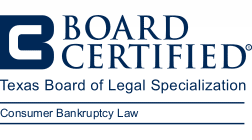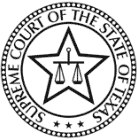What Happens If You Get a Divorce While Going Through Bankruptcy?
 Life rarely follows a predictable path, and sometimes multiple challenges happen at the same time. Financial distress and marital dissolution coincide for some people, creating a complex legal and financial situation. When bankruptcy and divorce intersect, you should understand how these two significant life events interact and influence each other. A Texas lawyer can help you manage bankruptcy and divorce simultaneously, offering legal guidance to protect your rights and help you navigate this challenging terrain.
Life rarely follows a predictable path, and sometimes multiple challenges happen at the same time. Financial distress and marital dissolution coincide for some people, creating a complex legal and financial situation. When bankruptcy and divorce intersect, you should understand how these two significant life events interact and influence each other. A Texas lawyer can help you manage bankruptcy and divorce simultaneously, offering legal guidance to protect your rights and help you navigate this challenging terrain.
Bankruptcy First or Divorce First? Choose Wisely
The order in which you file for bankruptcy and divorce can significantly impact both processes. Filing for bankruptcy before a divorce can simplify debt division in divorce proceedings, potentially reducing the debt burden for both parties and possibly freeing up more marital assets for division.
On the other hand, initiating divorce before bankruptcy allows for clearer division of assets and debts, might be necessary if spouses cannot agree on bankruptcy terms, and can help determine individual eligibility for Chapter 7 or Chapter 13 bankruptcy.
Considerations When Facing Bankruptcy and Divorce Simultaneously
When bankruptcy and divorce coincide, several critical factors come into play.
Filing for bankruptcy triggers an automatic stay, halting most collection actions. This stay applies to divorce proceedings related to property division but does not affect child support or alimony determinations.
The type of bankruptcy you file also has significant implications. Chapter 7 bankruptcy typically lasts 3-6 months, potentially delaying divorce finalization, while Chapter 13 involves a 3-5 year repayment plan, which could significantly impact divorce proceedings.
Another important consideration is whether to file for bankruptcy jointly or individually. Joint filings may complicate the divorce process, while individual filings might be simpler but could leave one spouse with more debt. Bankruptcy can also affect which assets are available for division in divorce, as some assets may be exempt in bankruptcy but subject to division in divorce.
It is important to note that bankruptcy discharge does not eliminate a spouse’s obligation to pay debts as ordered in a divorce decree. This interplay between bankruptcy and divorce law can have long-lasting financial consequences for both parties.
Protect Your Interests
To get through this challenging situation effectively, consider the following strategies:
-
Consult a bankruptcy attorney and a divorce lawyer to understand how these processes will impact each other in your case.
-
Be transparent about your financial situation in bankruptcy court and during divorce proceedings. Hiding assets or information can lead to severe legal consequences. Consider mediation or collaborative divorce to reduce conflict and save on legal fees.
-
Keep detailed records of all financial transactions, debts, and assets to ensure a fair division and compliance with bankruptcy and divorce laws.
While bankruptcy can discharge many debts, it cannot eliminate obligations like child support or alimony.
Work With a Houston, TX Bankruptcy Attorney
Dealing with bankruptcy and divorce simultaneously is challenging, but with the right guidance from a Galveston, TX bankruptcy lawyer, you can navigate this tough situation successfully. Each case is unique, and the best strategies will depend on your specific financial situation, the nature of your debts, and your relationship with your spouse. Call The Fealy Law Firm, PC at 713-526-5220 for a free consultation.











